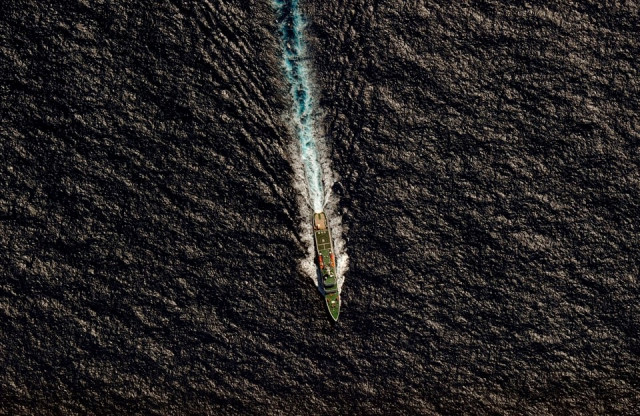South China Sea: facts on a decades-long dispute
Commentators say the 3 million square kilometres of water are a potential flashpoint for regional conflict

A Chinese ship steams through the southern Indian Ocean. PHOTO: REUTERS
China claims most of the sea, even waters approaching neighbouring countries, based on a vaguely defined "nine-dash-line" found on a 1940s Chinese map. The Philippines, and other countries, dispute this claim.
UN sea law lays down the rules for the planet's oceans
Commentators say the 3 million square kilometres (1.2 million square miles) of water are a potential flashpoint for regional conflict.
Here are six key questions about the sea and the issues around it.
It's mostly empty, and hundreds of the small islands, islets and rocks are not naturally able to support human settlement. Significant chains include the Paracels in the north, and the Spratlys in the south.
But everyone surrounding the sea -- Vietnam, Malaysia, the Philippines, tiny Brunei, Taiwan and, most significantly, China -- lay claim to some part of it.
Scientists believe that the seabed could contain unexploited oil, gas and minerals, which would be a boon to any country that can establish their claims to the region's waters, especially in resource-hungry Asia. It's also home to abundant fisheries that feed growing populations.
Chinese paper says should prepare for South China Sea armed clash
But the sea's key value is strategic. Shipping lanes vital to world trade pass through it, carrying everything from raw materials to finished products, as well as enormous quantities of oil.
Beijing views the South China Sea as its own backyard, a place where it is entitled to free, uninterrupted rein and where its growing navy should be able to operate unhampered.
For years, claimants have been building up the tiny reefs and islets to bolster their claims to ownership. China's land-reclamation programme has been particularly aggressive.
Satellite pictures now show inhabited islands where there was once only submerged coral and many have multiple facilities, including some with runways long enough for huge planes.
Beijing insists its intent is peaceful but the US and others suspect China is trying to assert its sovereignty claims and say that it could pose threats to the free passage of ships.
South China Sea: Facts about Asia's maritime flashpoint
Washington says the waters are international and regularly sends its warships there on so-called "Freedom of Navigation" missions.
China says these missions are provocations and warns the US not to interfere. It regularly stages its own exercises in the area as a show of force.
A five-member tribunal of maritime affairs experts in The Hague is due to issue its ruling.
The tribunal set up by the Permanent Court of Arbitration is allowed to arbitrate on matters of international law, including the United Nations Convention on the Law of the Sea (UNCLOS).
It has the power to make a decision that cannot be appealed. However the tribunal and the PCA have no means to enforce the verdict, with compliance left to the parties concerned.
Manila and its allies -- including the United States -- say China will nevertheless be bound by the ruling.
But Beijing has said from the start that the tribunal is invalid and gas boycotted its proceedings.
The Philippines hopes a favourable ruling will help to build international pressure on China to make concessions and reverse or stall its expansionist efforts in the sea.
Manila also hopes a win will give it much-needed leverage in any negotiations with China, including on signing a code of conduct for the sea.
ASEAN countries retract statement expressing concerns on South China Sea
President Xi Jinping said China will never compromise on sovereignty and warned it was "not afraid of trouble". But it is unclear how aggressively China will react.
It could choose to withdraw from UNCLOS, or begin building on Scarborough Shoal, a fishing ground within the Philippines' exclusive economic zone that it seized control of in 2012.
China could also declare an air defence identification zone over the sea, claiming the right to interrogate aircraft passing through the airspace.
Or it could seek to defuse tensions with the Philippines and enter into direct negotiations.



















COMMENTS
Comments are moderated and generally will be posted if they are on-topic and not abusive.
For more information, please see our Comments FAQ